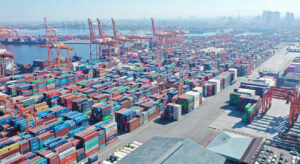TRADE barriers are being erected by members of the Asia-Pacific Economic Cooperation (APEC) bloc, the APEC Policy Support Unit (PSU) said in a report.
It said commercial trade among APEC members recovered to $4.9 trillion in 2022, lower than the estimated $5.4 trillion for 2022 “had there been no pandemic.”
The finding was contained in its Monitoring Pandemic Recovery Under the APEC Services Competitiveness Roadmap (ASCR) report.
According to the PSU, recently introduced trade restrictions are affecting foreign entry, movement of people, competition, and create momentum for other discriminatory measures.
“There are many factors that affect services trade. But one critical factor is government policies, which affect various services sectors differently,” PSU analyst Andre Wirjo said.
“Three years since the pandemic, while we’re seeing that member economies have started to roll back the temporary measures put in place during COVID-19, we’re also seeing more unrelated trade restrictions being introduced,” Mr. Wirjo added.
The unit said that the top restrictions vary by industry and could involve barriers to competition and regulatory transparency.
“While some restrictions may have been enacted for legitimate policy objectives, economies may wish to explore how these objectives could be achieved without having an unintended impact on trade, considering the interlinkages among policy measures,” Mr. Wirjo said.
The report indicated that travel-related trade, despite reaching $700 billion in 2022, only accounted for about 50% of both the value in 2019 and the projected value in 2022.
“After falling 81% between 2019 and 2020, the number of international tourist arrivals to APEC economies registered a further decline of 16.4% between 2020 and 2021 due to COVID-19 related border measures as many economies took longer to reopen,” the PSU said. — Revin Mikhael D. Ochave

